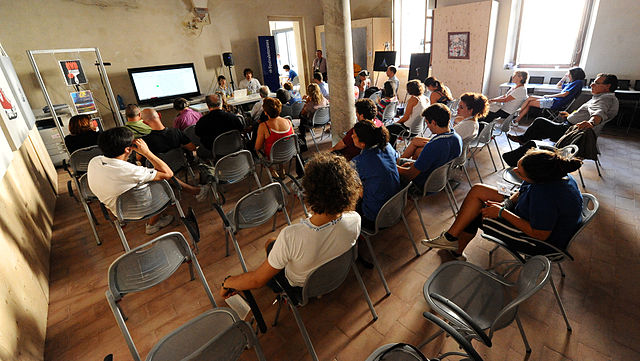Seminar vs Workshop
Seminars and workshops are both educational opportunities, and the differences between them do not make one superior to the other. Both types of events are valuable for individuals involved in skill-based professions, as they provide up-to-date knowledge and insights into emerging trends. However, there are fundamental differences in the style and methodology of these two types of courses, which this article will help to clarify.
There are many professions where individuals feel the need to update their skills, as new methods and techniques are constantly being developed. Attending short-term training courses, such as seminars and workshops, can help enhance these skills and learn new techniques, without the cost and time commitment required for full-time courses.
What is a Seminar?
A seminar is generally lecture-oriented and delivers similar content to a workshop. However, audience involvement and interaction are more limited or less extensive than in a workshop. Seminars are better suited for larger groups of participants, often over one hundred. Engaging sessions can still be achieved in seminars, depending on the teacher’s abilities. Seminars usually take place in classroom environments and often incorporate audio-visual aids as part of the presentation.
What is a Workshop?
In a workshop, participants play a more active role, and sometimes personalized help and assistance are provided by the teacher. Individual attention is possible in a workshop because the number of participants is typically kept low. Lectures play a smaller part in workshops, with a greater emphasis on practical learning. Workshops are usually held in more open and spacious locations than seminars, allowing participants to clearly see the techniques being demonstrated by the teacher.
What is the difference between Seminar and Workshop?
• Seminars and workshops are short-term training courses designed to help working individuals improve their skills.
• Seminars are lecture-oriented and better suited for larger groups. Personalized attention is not possible in seminars, although engaging sessions can still be achieved through the teacher’s skills.
• Workshops involve more demonstrations by the instructor and have fewer participants.
• Workshops are more interactive. Personal interaction with the lecturer is possible due to the smaller number of participants, which is not possible in seminars.
• Workshops tend to be longer, often lasting one or two days or more, while seminars usually range from 90 minutes to three hours, although day-long seminars also exist.
• Seminars often have more than one hundred participants, while workshops purposefully have fewer, usually 25 or less.
• Questions are addressed at the end of presentations in seminars, but in workshops, questions are answered as they arise.
Key Takeaways
- Seminars are lecture-oriented and better suited for larger groups, while workshops are more interactive and have fewer participants.
- Individual attention is possible in workshops due to the smaller number of participants, whereas this is not possible in seminars.
- Workshops tend to be longer and more focused on practical learning, while seminars usually have a shorter duration and rely more on lectures.
